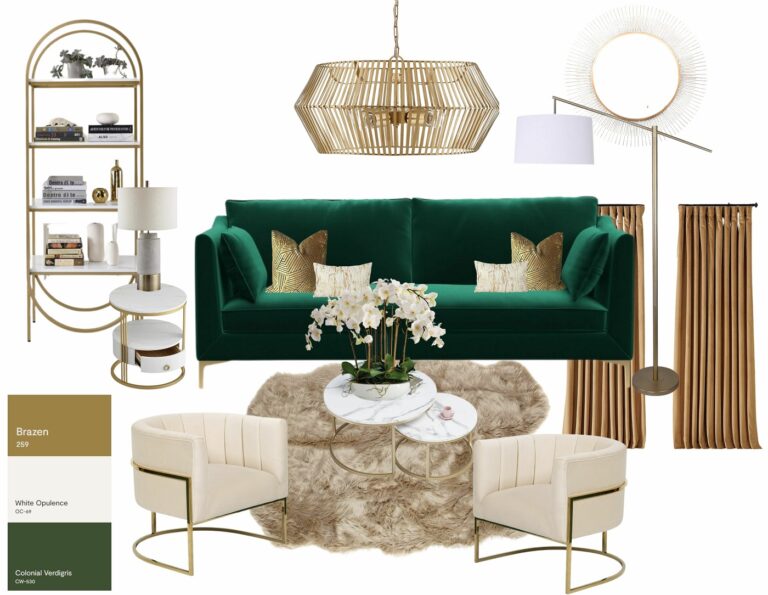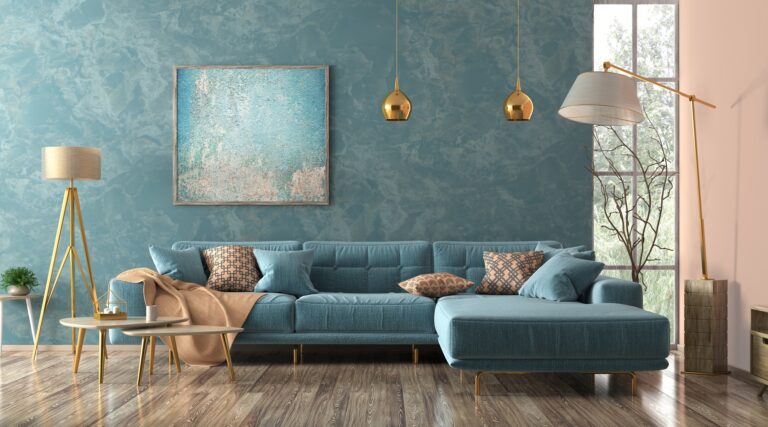The rise of artificial intelligence (AI) is impacting every industry, and interior design is no exception. New developments in AI—for example, AI-generated renderings, coupled with product recommendation links—have raised questions within our community about whether human designers could eventually become obsolete.
This got me thinking: should interior designers really be concerned about AI? There’s no doubt AI offers a range of incredible design tools, from 3D modeling to virtual reality. But can it actually replicate everything you bring to the table?
Simply put: no, it can’t. There are so many indispensable skills and qualities interior designers offer, which AI can never replicate.
Here are my top 5:
Table of Contents
1. Originality
Your creativity as a designer is shaped by diverse experiences, emotions, and cultural influences, which defy AI’s reliance on data and algorithms. While AI operates within set parameters, your creative mind is designed to think beyond those established norms, enabling you to innovate and generate out-of-the-box ideas and solutions. Clients who want a home that incorporates their individuality—their memories, emotions, and personality quirks—will value the originality and empathy only your human touch can provide.
2. Project Management
Interior designers do so much more than select products and create layouts—for one thing, you also manage projects from concept to completion. By navigating timelines, budgets, and logistics, as well as liaising with contractors and ensuring seamless coordination among various stakeholders, your project management skills save your clients valuable time and stress. Unlike AI, you have the ability to get on the ground, get your hands dirty, and manage the complexities and unforeseen challenges that will inevitably arise in any project.
3. Ability to execute a vision
Translating a vision into reality requires more than technical expertise. It demands a deep and personalized understanding of style and functionality. Unlike AI, you have the ability to both conceptualize and execute a cohesive vision for a space, based on your clients’ specific tastes, preferences, and lifestyle. So many moving parts contribute to bringing a space to life, including color palettes, textures, furnishings, artwork, and layouts. By harmonizing all these elements, you ensure the space not only looks great, but also functions seamlessly for your clients’ lifestyle. Your hands-on oversight during the implementation phase is also irreplaceable. By physically overseeing installations, you ensure designs are executed as envisioned and can adapt and make real-time adjustments where needed.
4. Understanding nuances
You have the ability to comprehend nuances in the design of a space that goes beyond data-driven analysis. For example, while AI might be able to select paint swatches, it can’t predict the interplay of natural light in a specific space with those paint colors. What might look great in a rendering might actually be a total fail in reality. You also have the perspective to understand how specific materials, or lighting schemes, might evoke different moods and emotions within a space. These nuanced insights, honed through experience and intuition, add depth and richness to your designs.
5. Network of vetted pros
Beyond design expertise, your clients benefit from your network of trusted contractors, vendors, and artisans, most likely cultivated over years of searching and relationship-building. Rather than having to go through the vetting process themselves, and dealing with the uncertainty of strangers in their space, clients can enjoy peace of mind thanks to your established connections with skilled, reliable professionals. And while AI might be able to find furnishings and accessories that meet a certain criteria, it will never be able to scour your favorite sources—the showrooms, flea markets, and antique stores you’ve spent years discovering—to find that rare gem that makes a house a home.
The final word
While AI does signify a paradigm shift in the interior design industry, it doesn’t diminish your significance. While some people, particularly those who already lean toward DIY, might leap at the convenience and accessibility of AI, clients who seek a beautiful, personalized, done-for–them space, will continue to rely on your unique expertise and human touch.
If anything, AI is an opportunity to pivot and use the tools it provides to complement, rather than replace your talents. Embracing AI to help streamline your process will empower you to grow your business, enabling you to focus more energy on engaging with your clients and generating exceptional design concepts.


